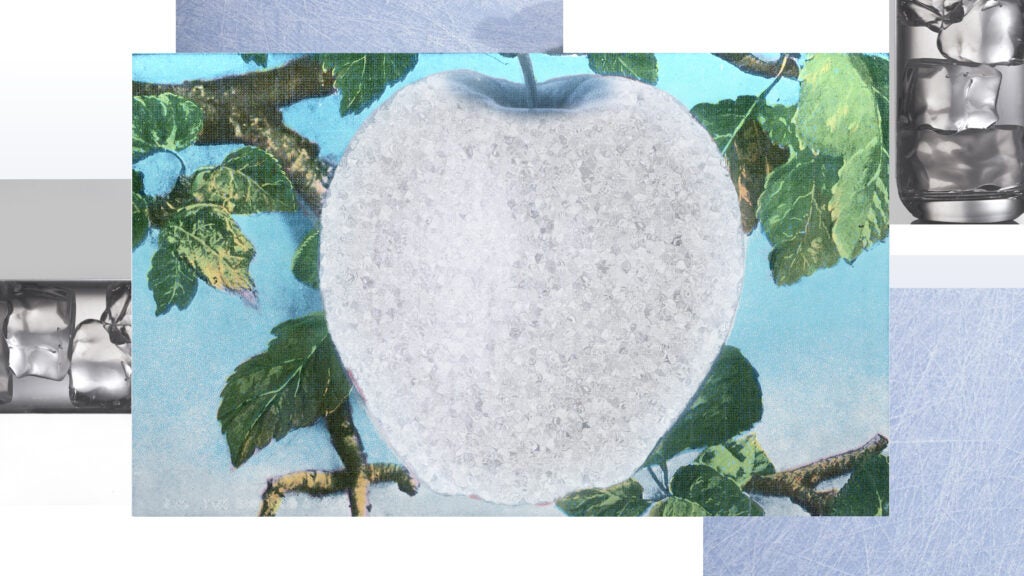When it comes to our health, we know that vitamins and minerals are the building blocks that support our overall well-being. Perhaps vitamin K2 is not as familiar to you as vitamins A, B, C and D, but it has a major role in balancing your health. In this blog, we’re taking a closer look at Vitamin K2 benefits that can revolutionise your health journey.
What is Vitamin K2?
Vitamin K is a fat-soluble vitamin which comes in two separate forms, K1 and K2. These are essential to the production of various proteins needed to enable the coagulation of blood and absorption of calcium and can be stored in the liver and in fatty tissue:
Vitamin K1
Known as phylloquinone and is found in leafy green vegetables.
Vitamin K2
Known as menaquinone and found in fermented foods such as kimchi, sauerkraut and natto (a Japanese food made from fermented soybeans). It is also found in fermented dairy products such as certain cheeses. K2 is present in various animal products with high amounts in organ meat such as liver.
Vitamin K2 is more biologically active with a longer half-life than vitamin K1. Additionally, K2 comprises menaquinonbe-7 and menaquinobne-4 (a synthetically produced version of K2).
The Discovery of Vitamin K
In 1931 a Danish biochemist and physiologist called Carl Peter Henrik Dam discovered a molecule which was responsible for the clotting of blood. He named the molecule vitamin K, which is the first letter of the Danish word for coagulation which is koagulering.
Professor Dam’s research further revealed that vitamin K supported bone metabolism, which is when old bone tissue is replaced by new. This function is particularly valuable following fracture, but it also takes care of the everyday micro-damage caused by general wear and tear.
The research carried out by Professor Dam and his team, in conjunction with a research team from the United States led by Edward Doisy, went on to discover many other features of Vitamin K and its role in human physiology. Apart from its primary function in enabling efficient blood clotting and the prevention of excessive bleeding, they also found that vitamin K helps to minimise bruising when blood vessels are damaged. In 1943 Professors Dam and Doisy were jointly awarded the Nobel Prize in Medicine for their work in discovering Vitamin K.
How Does Vitamin K Work?
Your body naturally produces some vitamin K, but research has discovered that the two forms, K1 and K2, fulfil different roles in various areas of health. The activity of vitamin K1 takes place mainly within the liver, but vitamin K2 has extra health benefits, independent of K1. However, both vitamin K1 and K2 are valuable in their function to achieve efficient blood clotting.
Although no set recommended intake of K2 has yet been verified, it has been found that between 10 and 45 micrograms is necessary to access those extra health benefits. It has also been concluded in studies that approximately 90% of the vitamin K consumed in the Western diet is K1. Unfortunately, there appears to be a deficiency in our diet, or at least in the choices readily available to us, of the foods which have the highest levels of K2 such as fermented plant foods. This means we may be missing out on those important extra benefits.
What are the Vitamin K2 Benefits?
Emerging results based on many clinical trials have been published in medical journals and these findings highlight some of the many health benefits of K2. These results make enlightening reading, particularly given that many of the discovered benefits offer protection from some of the world’s most pernicious health issues. See section entitled ‘Further Reading’ at the end of this blog to access this information.
As you will see from the array of serious conditions for which vitamin K2 has an impact, the additional benefits of this nutrient are indeed of great value.
Cardiovascular Health
Vitamin K2 breaks down calcium in your blood and this helps prevent a build-up of calcium and fatty deposits in your arteries. This build-up of solid matter can cause hardening of arteries which leads to heart disease. By keeping arteries healthy, smooth, and flexible, vitamin K2 lowers the risk of cardiovascular issues.
In addition, K2 has been found to promote healthy blood circulation by preventing dangerous blood clots which gives further cardiovascular protection. This evidence applies only to vitamin K2. Vitamin K1, although valuable in its blood clotting capacity, was not found to have any bearing on cardiovascular support.
Vitamin K2 benefits includes contributing to maintaining healthy cholesterol levels and hormonal balance, giving further protection to your heart.
Studies have found that supplementing with K2 can also give cardiovascular protection to post-menopausal women.
Further reading on the role of K2 in cardiovascular support
Cancer Prevention
Emerging research suggests that Vitamin K2 may play a role in preventing certain types of cancer. Its antioxidant activity, coupled with its impact on cell growth and DNA synthesis, make it a potential game changer in the battle against cancer. So far studies have focussed on liver and prostate cancers where encouraging findings have been recorded.
It was noted that these findings relate solely to vitamin K2 (menaquinone). Vitamin K1 (phylloquinone) was not found to have any effect in cancer treatment.
Diabetes Management
Managing diabetes can be a challenge, but some studies into the effect of K2 on blood sugar levels and improving insulin resistance have shown promising results. It also provides cardiovascular support to diabetes sufferers. Incorporating Vitamin K2 into your diabetes management plan could make a world of difference.
K2 has been found to give excellent support in cases of peripheral neuropathy.
Bone, Dental, and Joint Health
Vitamin K2 is the superhero for your bones, preventing osteoporosis and ensuring optimal bone health. It also enhances dental health, protecting against tooth decay and gum disease. Additionally, Vitamin K2 helps maintain joint health, preventing age related deterioration and helping to keep you mobile.
Your body needs calcium to create and maintain strong bones, and when vitamin K2 breaks down the calcium, it activates a protein which helps it to bind to your bones, ensuring maximum benefit. Results of studies show that a higher intake of K2 improves bone density and reduces the risk of fractures.
In a study to assess the role of vitamin K2 supplements on bone density and fractures, it was found that K2 lessened the risk of hip fractures by 77%, vertebral fractures by 60%, and non-vertebral fractures by 81%.
Research has found that vitamin K2 MK-7 supplements help postmenopausal women in the prevention of bone loss. The supplements were found to give significantly improved bone-mineral density as well as strength.
Brain Health and Cognitive Function
Your brain deserves all the support it can get, and Vitamin K2 is here to help. Research suggests that Vitamin K2 may reduce the risk of neurodegenerative diseases such as Alzheimer’s and Parkinson’s disease, keeping your mind sharp as you age. It also supports healthy brain development and function, promoting cognitive abilities at every stage of life.
You may be interested in further evidence-based reading on K2 for brain health and cognitive function.
Immune System Support and Anti-Inflammatory Properties
Boosting your immune system is crucial for overall health, and Vitamin K2 plays a significant role in supporting it. Additionally, it has anti-inflammatory properties, potentially reducing the risk of chronic conditions triggered by inflammation.
Liver Health and Blood Consistency
Vitamin K2 benefits the health and function of the liver but also maintains blood consistency (not too thick and not too thin), ensuring proper blood flow throughout your body. Keeping your liver healthy is crucial for overall well-being, and Vitamin K2 can be an indispensable ally in achieving that. If you are already taking blood-thinning medication you should consult your doctor before supplementing with K2.
Anti-Aging and Skin Health
Vitamin K2 can be your secret weapon in the quest for healthy and glowing skin. It also contributes to wound healing and reduces the appearance of scars.
Foods Containing Vitamin K2
Vitamin K is found in many vegetable foods which we may regularly include in our diet, but often these contain only K1. Some of the foods which contain the highest levels of K2, such as fermented foods, tend not to be among the regular dietary choices in the western world, which is why clinicians are currently advocating supplementation with vitamin K2. However, here are some examples of K2-rich foods to help you access some of the special benefits:
- Natto – Made from fermented soybeans. Natto is a Japanese dish which is high in nutrients that promote digestive health. It is the highest source of vitamin K2 available. One tablespoon of natto provides 150 micrograms of K2, twice as much as the recommended requirement.
- Sauerkraut – Fermented cabbage which is good for gut health and for boosting immunity. Sauerkraut is a very good source of vitamin K2.
- Kimchi – A dish native to Korea but now available worldwide. It is made from fermented cabbage, spinach, various other mixed vegetables, garlic, ginger, fish sauce and chili flakes.
- Eel – Provides a seafood or freshwater form of K2-rich protein.
- Cheese – Certain cheeses represent rich sources of vitamin K2 but unfortunately, they are also high in saturated fat. This means that you should limit your portions to protect your weight and cardiovascular system. The cheeses with the highest amounts of K2 include camembert, edam, gouda, and cheddar.
- Beef Liver – Contains vitamin A, riboflavin, folate, and copper. It is also the best meat-based source of vitamin K2.
- Chicken – A good choice of K2 for those who are not keen on eating offal. Having 10 micrograms per 100 gram serving, chicken provides five to ten times the vitamin K2 than beef or pork.
- Butter – One tablespoon has 2.1 micrograms of K2, but it also contains 100 calories, and 11 grams of fat so must be eaten in strict moderation to avoid health risks and weight gain.
- Egg Yolk – The amount of K2 in egg yolk is very much dependent upon what the hens are fed. Some chicken feeds are fortified with vitamin K, but birds fed on corn or soy-based diets are likely to be deficient in vitamin K.
MK-7 Menaquinone (K2-7) Dietary Supplements
There are two types of vitamin K2, namely MK-4 and MK-7:
MK-4
MK-4 is a synthetic form of vitamin K2.
MK-7
MK-7 menaquinone is the purest form of vitamin K2 which comes chiefly from natto, a traditional Japanese food which is produced by fermenting soybean using Bacillus subtilis. MK-7 is more easily absorbed by the body than vitamin K1 (phylloquinone).
Menaquinone does occur in certain dairy products, the main source being cheese. However, because various bacteria are used in cheese making, the levels of menaquinone present in different cheeses can vary greatly, making this a somewhat hit and miss source.
Although menaquinone occurs naturally in the flora of the intestines, it is not readily absorbed by the body, so the maximum benefits are not easily achieved.
MK-7 menaquinone has been found in clinical studies to have beneficial properties for heart disease, osteoporosis, cancer, inflammation, Alzheimer’s disease, diabetes, and peripheral neuropathy. It is also known to reduce the risk of broken bones.
Relevant Supplements:
Vitamin K2 made using menaquinone 7 (MK7). This is the purest, most natural, and most bioactive form of Vitamin K. It is made from natto which is a Japanese food produced with fermented soybeans.
Wholefood Multi- Vitamin and Minerals – You may prefer to take a multi-vitamin and our supplement contains 80% of the Nutritional Reference Value (NRV) of Vitamin K2.
Trials involving the combination of vitamin K2 taken alongside vitamin D3 have established that the combination of these two vitamins create synergistic benefits for both bone health and cardiovascular support.
D3000+ Vitamin D3 and K2 Oral Spray provides a supplement which harnesses the power of both vitamin D3 and K2 which work together to protect your arteries from an excess of calcium, whilst ensuring the calcium targets your bones.
Possible Side Effects of Vitamin K Supplements
Vitamin K supplements may interact with blood-thinning drugs such as Warfarin. This could result in a reduction in the effectiveness of the blood-thinning medication.
Antibiotics or weight loss medication could reduce the body’s ability to absorb vitamin K. If you are currently taking these drugs, you may wish to include vitamin K in your diet daily to ensure your levels are not depleted.
Check with your doctor if you are unsure about the safety of taking any supplements.
Top 10 Key Takeaways
- Vitamin K2 benefits include cardiovascular health, supporting healthy blood circulation and preventing arterial calcification.
- Emerging research suggests that Vitamin K2 may have a role in cancer prevention.
- It promotes bone, dental, and joint health, preventing osteoporosis and protecting against tooth decay and gum disease.
- Gives post-menopausal support for bone density.
- Vitamin K2 MK-7 plays a vital role in brain health and cognitive function, reducing the risk of conditions like Alzheimer’s disease.
- It supports the immune system, decreases inflammation, and potentially prevents chronic inflammatory conditions.
- It can aid in diabetes management by helping regulate blood sugar levels and improving insulin resistance.
- Vitamin K2 supports liver health and acts as a natural blood thinner, promoting healthy blood flow.
- It contributes to oral health and dental enamel, preventing tooth decay and gum disease.
- Vitamin K2 has anti-aging properties, improving skin health, wound healing, and reducing the appearance of scars.
- Incorporating Vitamin K2, in the form of MK-7, into your daily routine, along with a balanced diet, can lead to a healthier and more vibrant life.
Further Reading
Article setting out results of clinical trials on the impact of vitamin K2 on many serious health issues, published in the IMCJ (Integrative Medicine: A Clinician’s Journal). Link to article.
Our Promise
When it comes to keeping you informed on health and nutrition, we’re here for you and aim to help where we can. If you would like to discuss any aspect of using natural supplements, or would find advice helpful, please feel free to contact us on 01297 553932
Publisher: Source link



